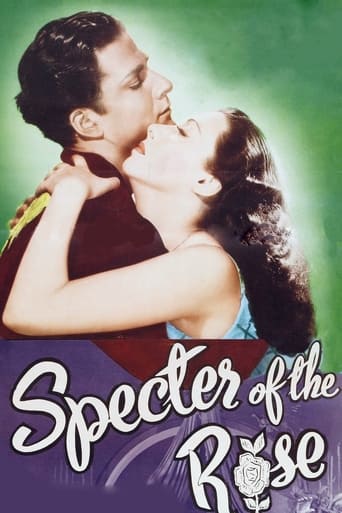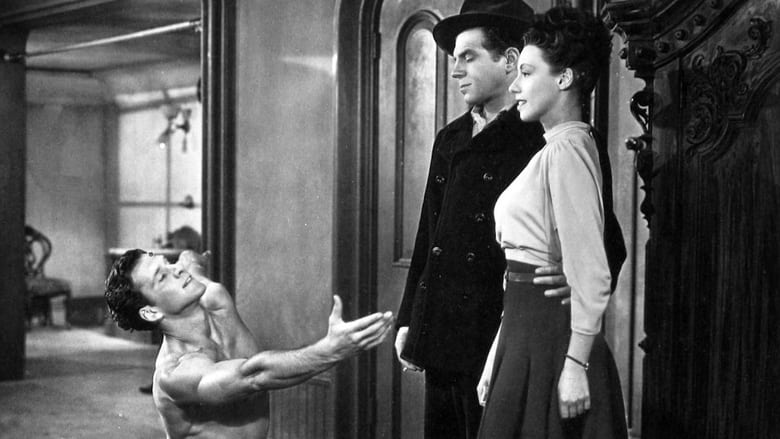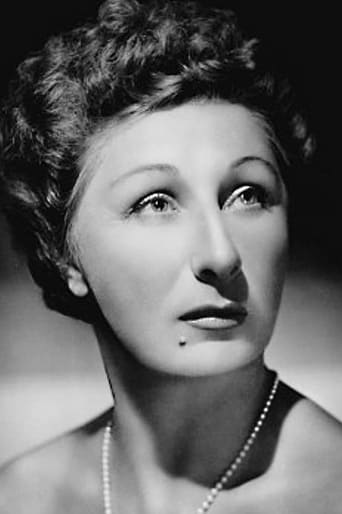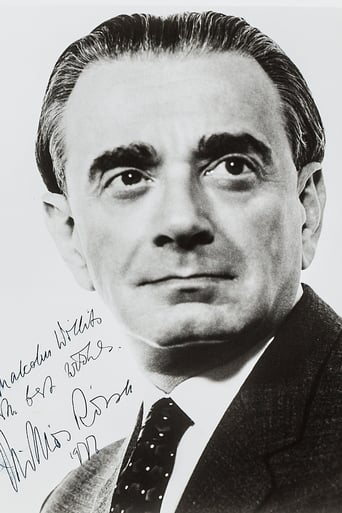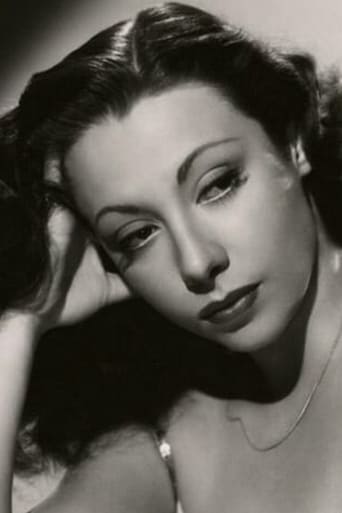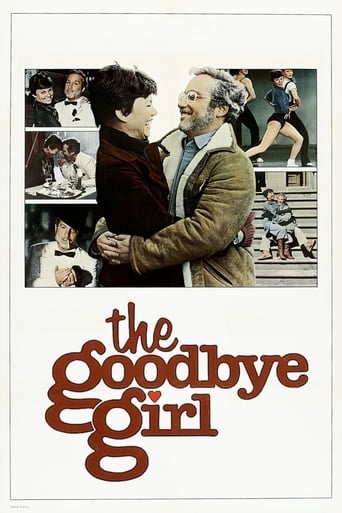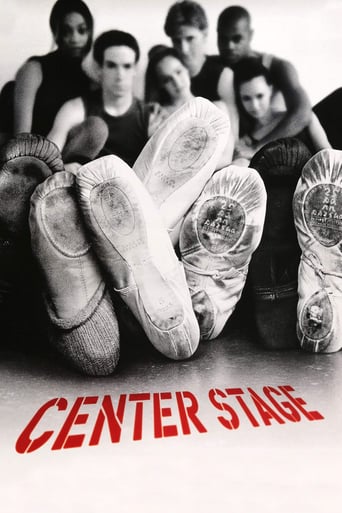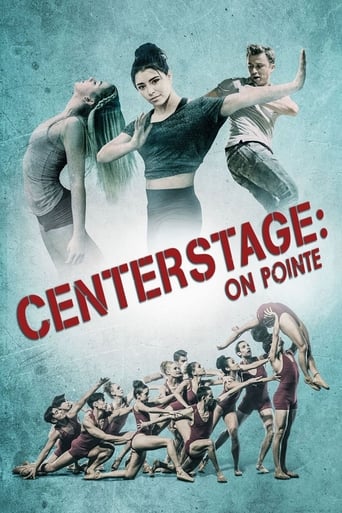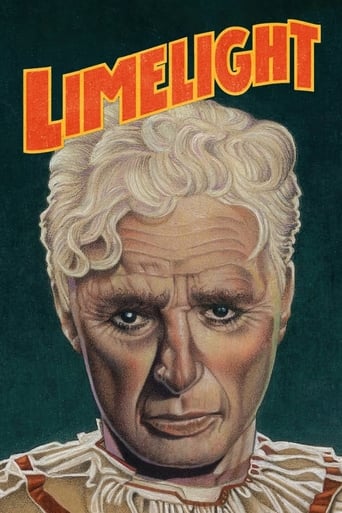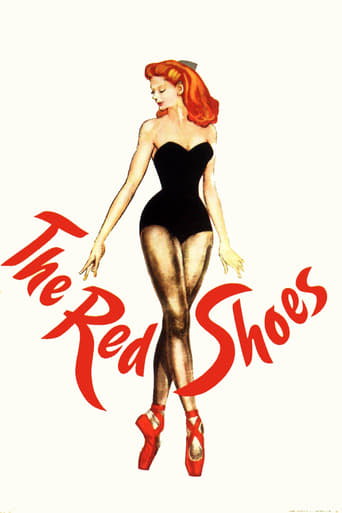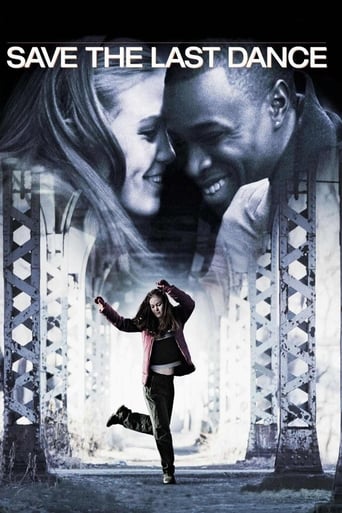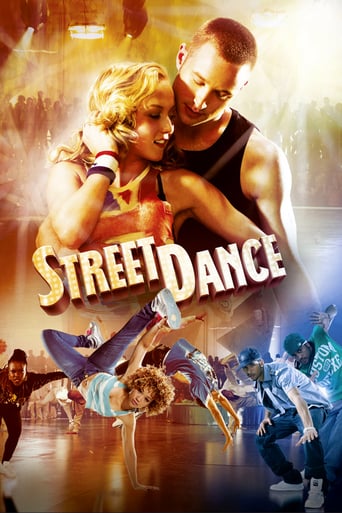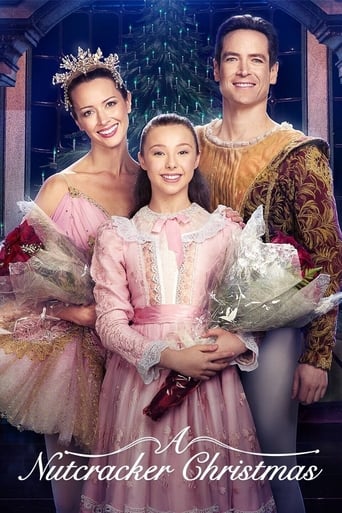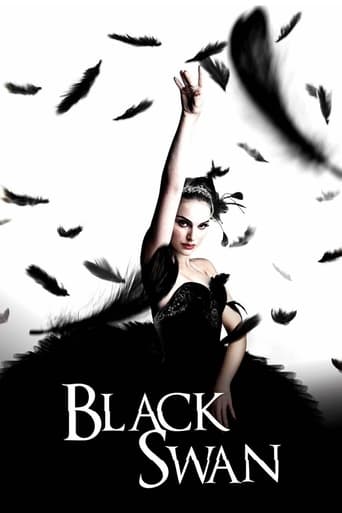Specter of the Rose (1946)
Ballet dancer Sanine may have murdered his first wife. A detective thinks so, and he's not the only one.
Watch Trailer
Free Trial Channels
Cast


Similar titles
Reviews
It's no definitive masterpiece but it's damn close.
Highly Overrated But Still Good
disgusting, overrated, pointless
Good films always raise compelling questions, whether the format is fiction or documentary fact.
An all-American young man, who is an excellent classical dancer, has risen to fame under the Russian-sounding name of Sanine. After the sudden death of his wife, Sanine sinks into a deep depression. Cared for by a kind-hearted and besotted ballerina, Sanine seems to recover both his mental health and his appetite for life. But what about the persistent rumours ? Did Sanine really kill his spouse ?"Specter" is an uneven and over-ambitious movie. At the same time it is an original and electrifying noir, notable mainly for its evocation of a certain kind of Russo-American ballet circa 1940-1950. Viewers interested in ballet, or in the history of ballet, are sure to enjoy both the music and the (excerpts from) performances. There is also a colourful depiction of the artistic bohème, with its age-old and universal problems : amorous rivalry, lack of money, nomadic employment, conflicts between real life and play-acting or between soaring vision and vulnerability. I'm sorry to say that the actor playing Sanine is both a beautiful man and a decent dancer, but not the most gifted of actors : watching him tackle a demanding, psychologically complex role is rather like watching a hamster drive a school bus. He redeems himself in his final scenes, which are genuinely chilling and unsettling. I do not think that anyone who saw Sanine's final exit, will ever watch "Le spectre de la rose" with the same eyes again...
This movie, as self-conscious as it is in telling a tale of art and madness, is no work by Hollywood hacks. Unfortunately, it's even worse; it's the work of probably Hollywood's greatest screenwriter, Ben Hecht. He was at the height of his fame and clout, so he received the go-head to write, direct and produce what must have been a project close to his heart. It goes to show, once again, that even the greatest creative types need an editor, or at least a friend they respect who'll tell them when something isn't working. The Specter of the Rose tells the story of Andre Sanine (Ivan Kirov), a great ballet dancer who is suspected of killing his wife in a period of madness, while they were dancing Le Spectre de la Rose. For weeks afterwards he simply lay in bed, unable to dance, unresponsive to all those in the world of ballet who see him as a genius. They include Madame la Sylph (Judith Anderson), once a great ballet artist herself who now runs an impoverished ballet school but who maintains the highest standards, and Max Polikoff (Michael Chekhov), an eternally optimistic and unreliable impresario, and as hard up for funds as is Madame la Sylph. Lurking about is a critic, poet and writer, Lionel Gans (Lionel Stander), who cynically comments on what he sees, usually in epigrams. When Sanine meets a young ballerina, Haidi (Viola Essen), he recovers. He has a renewed passion for dancing. He and Haidi fall in love and marry. Polikoff cobbles together enough funds to mount a production of Le Spectre. Madame la Sylph supervises the production, but with misgivings. And Sanine and Haidi will dance together...the story of a young woman who returns from her first ball joyous and clutching a red rose. She falls asleep and the rose comes to life as a lover. They dance, and as he fades away, she dies with a smile of love and longing on her lips. Will history repeat itself with Sanine and his new wife? Somewhere between the opening message, "Here's to the seven arts, that dance and sing, And keep our hearts, green with spring," and the last message spoken by Gans, "Out of our endless tears, we make our own little songs and dances," one assumes is the place Hecht wanted for this movie. That he fails, in my opinion, doesn't make the film so much a failure as a gallant but misguided attempt. It seems to me that Hecht had the bones of an engrossing story, but he was felled by the excesses of his own script and by the problem he created for himself of having to find two dancers who could dance their roles credibly while being good enough actors not to compromise the story. He only managed to find two dancers. The acting by Kirov and Essen, combined with the self-consciousness of the script, is frustrating. Lionel Gans, with his epigrams and over-written posturing, is used by Hecht as a kind of on-screen commentator. He is just irritating. For instance, early in the movie Gans comes to Madame la Sylph's ballet studio with a police detective investigating the death of Sanine's first wife. Polikoff introduces himself to the detective. Gans speaks up with world weary cynicism, "A wilted carnation," he describes Polikoff, "in the Broadway buttonhole. This is Madame la Sylph, the remains of a pirouette. And this is the sad little factory where dancing toys are made." Yet it seems Gans has been carrying a torch for Haidi. When he criticizes Sanine she turns on him. "Oh, you're a monster! I loath you! I just loath you!" she says and begins to cry. Gans looks at her for a moment and says quietly, "I didn't think you could cry. I often cry, at night. Then I think of you and I become full of young words all dancing for you, and then I pretend I'm not a monster. And on this delusion I live until morning." Ben Hecht or not, this sort of writing is awful. Or this exchange between Sanine and Haidi. They are sitting together at a small table. "Hug me with your eyes," he asks her. "I am," she says. "Harder," he replies. What happened to the skillful Ben Hecht of His Girl Friday, Notorious, Nothing Sacred and Wuthering Heights? With the exception of Judith Anderson, who turns in a highly professional job, the other actors are either exaggerations or dull. Michael Chekhov, with a hairdo that looks like it was created for one of the Munchkins, plays an aging, effeminate, eye-rolling, overly-dramatic character who outclasses even Clifton Webb. Lionel Stander, with that tough looking mug and rough voice, seems almost willfully miscast. He's interesting at first, but then the character, a one-note portrayal, becomes tiresome. The two leads both seem to be professional and competent dancers. Kirov, especially, is called upon to do impressive leaps. Neither can act well. Kirov, for modern audiences, looks uncomfortably like a young Leslie Nielson. Hecht, for all this, makes the movie an amusing look at all it takes to make something creative happen, from musicians' unions, agents, society backers and billing lines. The movie also has a fine musical score by George Antheil. Although he paid the bills by writing for movies, Antheil was a widely respected composer of symphonies, chamber works, sonatas and ballets. The music he wrote for the Specter of the Rose ballet in the film features an intriguing and angular waltz that most decidedly doesn't make you think of turn-of-the- century Vienna. As the creation of a hugely gifted writer and outstanding screen-writing craftsman (just check all the movies Hecht was called on to fix without taking credit), The Specter of the Rose is worth watching and even buying. But it is a curiosity piece, an intriguing failure.
I saw this once at the age of 20. I'm now 80. It's still on my top ten, all-time list. I remember Lionel Stander and "loving her with his eyes". I haven't seen it since. It's a most unusual, beautiful memory. Others on my list are "Separate Tables" (produced by Hecht who wrote "Spectre) and Witness for the Prosecution": Is anybody picking up a pattern? No, because "My Fair Lady" and "Quacker Fortune Has A Cousin Living In The Bronx" are there, too. Until I wrote this I hadn't realized that everybody in all these casts only truly fell in love ONCE. Until I wrote this I hadn't realized that I did, at 20, and still am, at 80. And, until I wrote this line I haven't written the minimum ten.
For those of us who are part of the real world of ballet - this film is completely ridiculous. Ivan Kirov was basically a gymnast, not a ballet dancer. Viola Essen at the time was with Ballet Theater, now American Ballet Theater, and a reasonably good dancer, but except for Dame Judith Anderson, the acting is amateurish and Checkov is completely over the top .... embarrassingly so! I saw this film at age 14 and at that time, never having seen a ballet, I was very impressed. However, later in life, long after I had completed my own career as a dancer - I purchased the video tape of it, curious as to what it was like after so many years. I couldn't believe how naive Hollywood could be about the world of ballet. But it was made in the mid 40s, before The Red Shoes or The Turning Point, the latter giving a true picture of the ballet world. The entire cast of Spectre have now passed away ... Ivan Kirov (not his real name)dying at age 79. It was his one and only film, thereafter being kept by a Chicago business man .. so the rumor goes.

